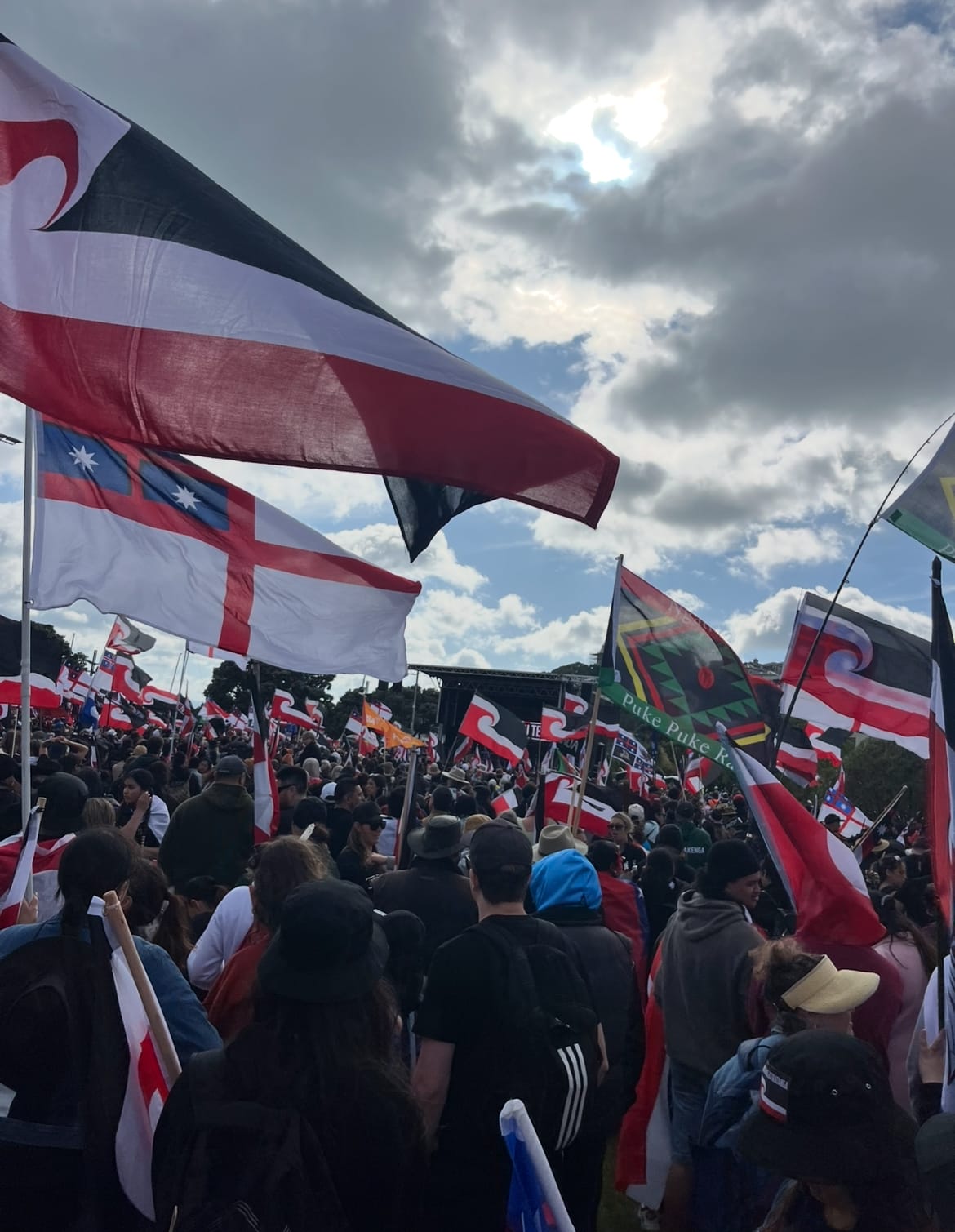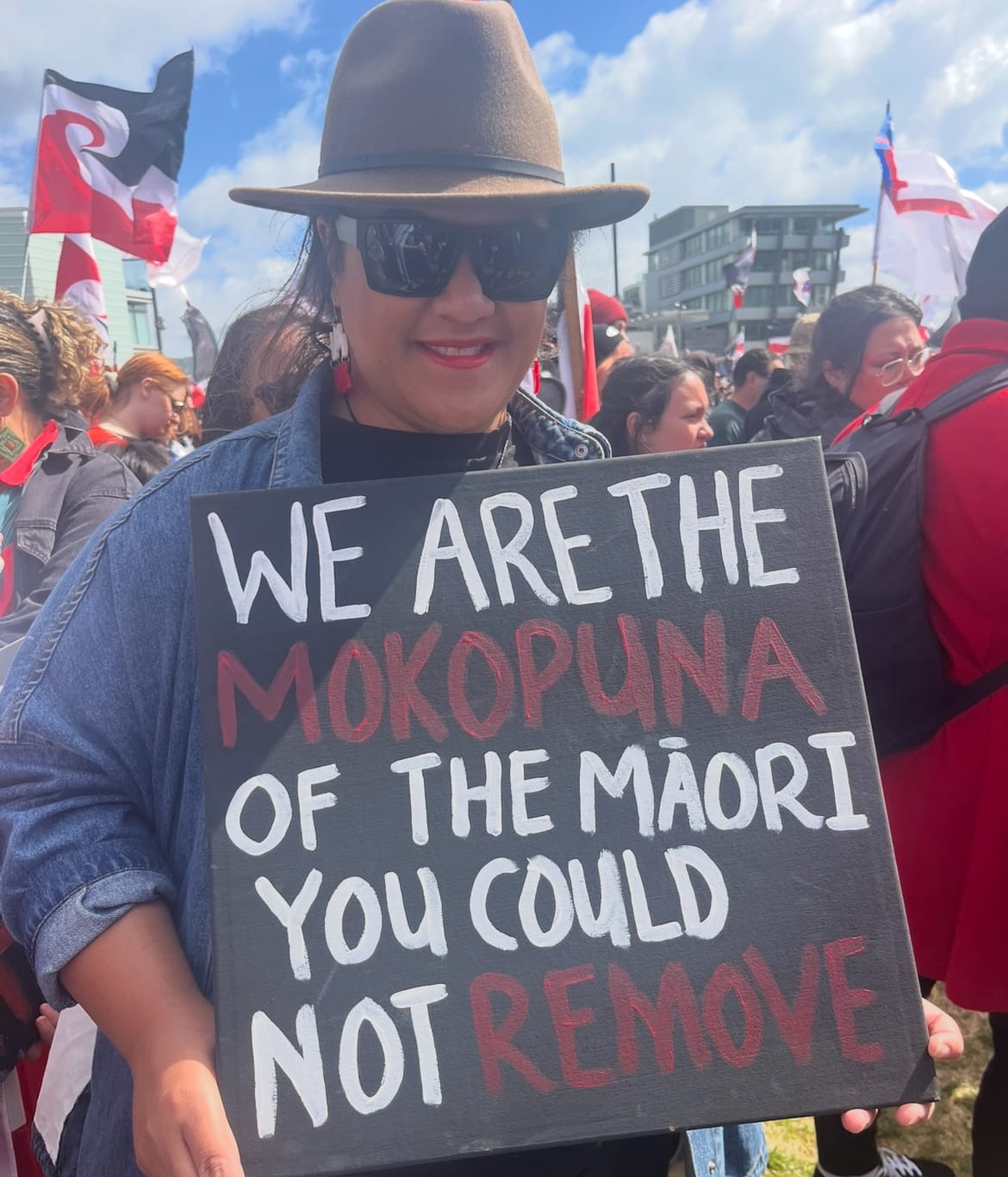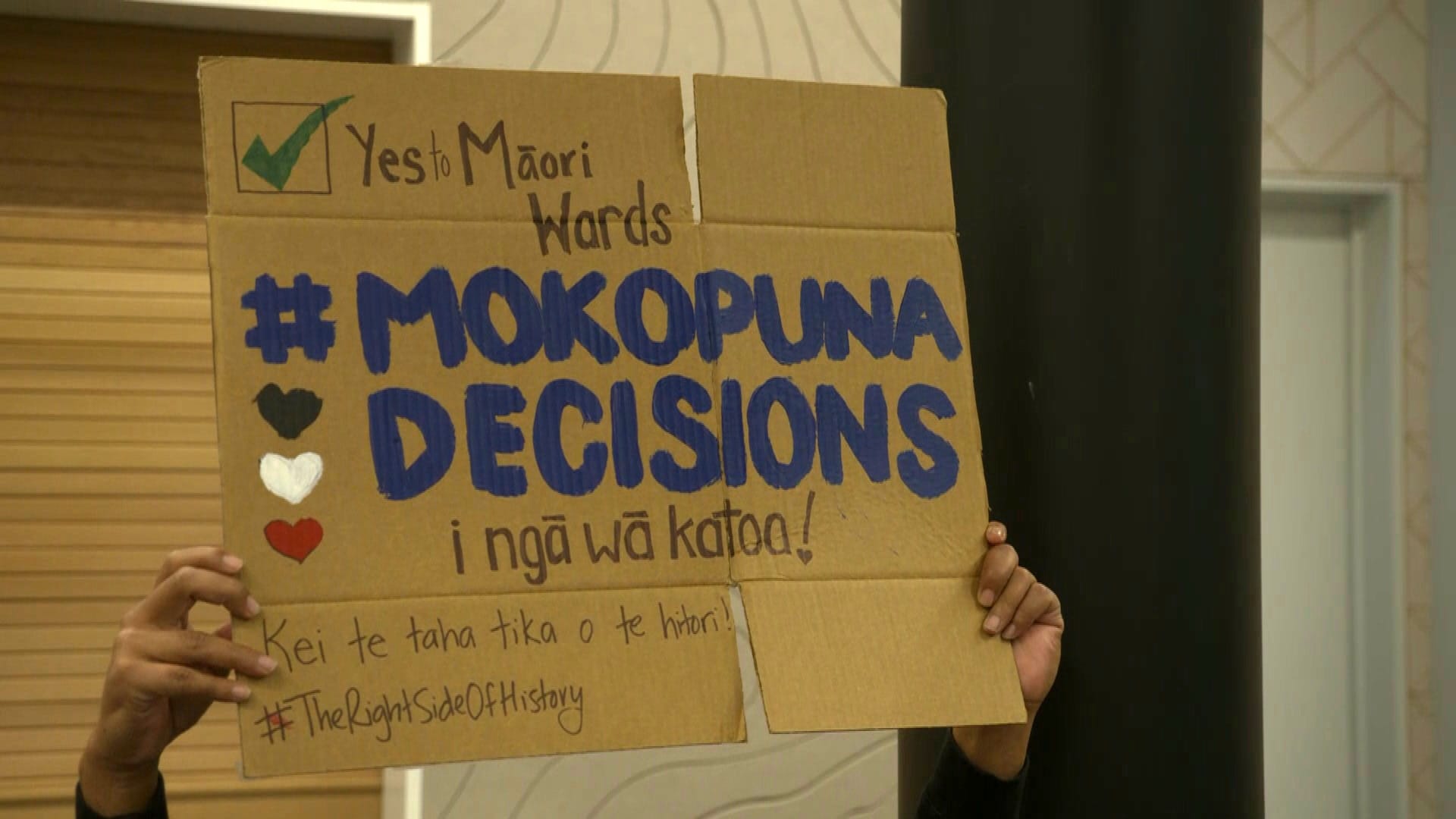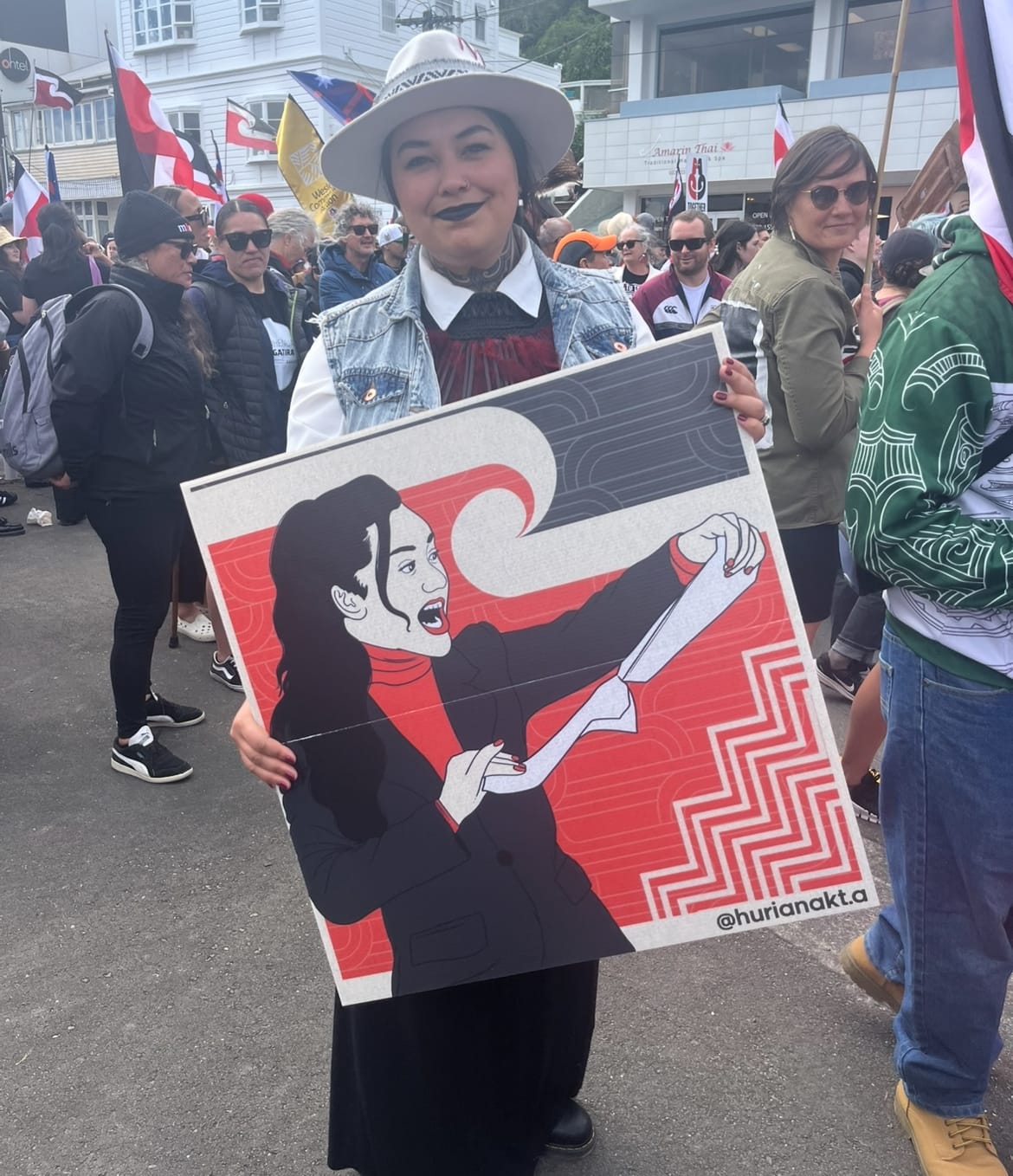Explainer: Māori wards. What am I voting for and why?

Here at Emily Writes Weekly, we often do ‘Explainers’ on important issues that can be hard to get your head around. We bring in an expert (or experts) and ask the basic questions so we can educate ourselves and work out what’s going on across the motu. I’m always learning alongside you - and I hope you find these explainers helpful.
Today, we’re talking about a critical and timely issue - Māori wards. This matters because you’ll be getting your voting papers in the mail, and you may be voting on whether to keep Māori wards and constituencies in your region*.
I talked to Jen Margaret, who is a Te Tiriti educator with Groundwork: Facilitating Change, and part of Tiriti Action Group Pōneke
Emily: OK, first of all, what is a Māori ward?
Jen: Māori wards provide representation for Māori on local councils (city and district councils). They are a bit like the Māori electorates in central government. People on the Māori roll vote for candidates in Māori wards. Those on the general roll vote for candidates in general wards. People can only be on one electoral roll, and the number of wards is proportional to the number of people on each roll.
Councils regularly review how things work to ensure that the make-up of the council is fair and meets the needs of their communities. These reviews involve community input, and look at things like how many councillors there are, how they are elected and what wards are required to ensure good representation.
Wards, (which are called ‘constituencies’ in regional councils) are usually geographically based, but can also be created to ensure important voices are at the council table. Through this process, some councils have established Māori wards so that Māori interests are represented in council decision-making. Some councils have also established rural wards to ensure the interests of rural communities are heard.
Why do we need them?
Most New Zealanders want our voices represented when decisions are being made about our communities and country. Decisions made by local government have a huge impact on all our lives, so it’s important that council decision-makers reflect our communities and the lands we are located on.
The system of local government was created by the Crown, disregarding existing hapū / iwi authority and structures which had been around for generations, and city and regional councils have often had no Māori representation. For example, in 2001, the year that Māori wards and constituencies were established, only 20 Māori held local government positions out of over a total of 1000 councillors nationwide. The establishment of Māori wards has contributed to an increase in the proportion of members who identify as Māori to 21.6% in 2022. Māori wards and constituencies are one way to ensure Māori voice in local decision making.
Having Māori voices in local government brings knowledge, perspectives and expertise that enhance community and environmental wellbeing. Communities and councillors say Māori wards deepen relationships and trust between councils, iwi, hapū and Māori generally, improve voter turnout, and have positive practical impacts, for example, better community responses to emergencies because of the stronger relationships with marae and Māori communities.
“Since the introduction of Māori wards, I’ve seen the positive change in making a healthier, stronger and more unified community.” Mayor of Heretaunga Hastings, Sandra Hazlehurst
“Mana whenua across the motu have multi-generational insights, knowledge, perspectives and aspirations about the places they come from and the resources and environments in those places. They only want the best outcomes for our whenua, for our wai, for our moana, and for all future generations of people who will call Aotearoa home.” Councillor Bonita Bigham, Taranaki Regional Council

Does every council have a Māori ward?
No. There is a long and complicated history to all this. In short, when Māori wards were established in 2001, they were subject to unfair treatment, where 5% of voters could instigate a referendum for them to be overturned. In 2021, that law changed, meaning councils could decide whether to have Māori wards or constituencies on the same basis as they decide any other ward, with their decision no longer potentially being subject to a divisive public poll. As a result, the number of councils that introduced Māori wards increased from 3 to 49. Some councils have other arrangements for involving Māori in local decision-making. We ideally need both Māori wards/constituencies and mana whenua partnerships to support informed, long-term decision-making for the benefit of everyone in our community.

Why are we voting on them anyway? Shouldn’t it be up to councils to decide if they have a Māori ward?
Yes, it should. Better still, we should have systems where mana whenua determine Māori representation and decision-making in their rohe. However, within the systems we currently have, having Māori representation within local government is important, and there are strong processes in place for local government to consult with their communities on representation.
Despite this, the government passed a law in July 2024 that requires a binding public poll to be held on Māori wards. This means that councils that want to retain or establish a Māori ward must run a poll alongside the current local elections, and a majority of voters in each city, district, or region must support Māori wards for them to be retained. The current government campaigned on localism, and yet this law directly overrides local decision-making.
42 out of 44 councils impacted by the law change voted to keep their Māori ward or constituency, which means they are now forced to undertake these costly and binding polls.

This all sounds like bullshit racist fuckery. Is it?
Well, the requirement for a poll applies only to Māori wards, not to any other wards created by councils, such as rural wards. So, yeah …
Is there a list somewhere that says which councils are voting?
Yes, you can find that here on the PŌTI 2025 | VOTE 2025 website. The website was put together by local government professionals with expertise in the electoral process.
I've also added a list at the bottom of this newsletter. So, you’ve convinced me to vote YES to Māori wards.
Yay! Thanks for voting to keep Māori wards and constituencies. Make sure you get your vote in the post by 7 October. Otherwise, you have to return your voting papers to your council’s secure ballot boxes by midday on 11 October.
What else can I do to combat this racist attack by David Seymour against Māori representation in local government?
- Educate and encourage others to vote to keep Māori wards too – whānau, colleagues, friends. Share resources like Groundwork’s useful explainer on Māori wards, this helpful guide to voting for Māori wards, and this information for voters website on how voting in local elections works.
- Research the candidates standing in your area and vote for people who have a track record of supporting meaningful mana whenua relationships and Te Tiriti o Waitangi.
- Contact your local candidates/Council to encourage them to ensure meaningful Māori involvement in local decision-making and to develop mana whenua partnerships to uphold Te Tiriti and support our communities to flourish.
- Don’t stop with Māori wards, show up and speak up against racism in support of Te Tiriti o Waitangi in other areas too – there’s no lack of opportunities right now.
This attack is the work of all three coalition parties, so it’s important we remember this and all the other racist acts of this coalition government when we’re deciding who to vote for at next year’s general election! Support local groups like Tiriti Action Group - Pōneke and let’s together build a fair, inclusive Te Tiriti based Aotearoa in which we all flourish.
Thank you so much Jen! And thanks to everyone working hard to combat the racist BS being pushed by this government.
*The councils holding Māori ward referendums this year (listed alphabetically) are:
- Central Hawke’s Bay District Council
- Far North District Council
- Gisborne District Council
- Hamilton City Council
- Hastings District Council
- Hauraki District Council
- Hawke’s Bay Regional Council
- Horizons Regional Council
- Horowhenua District Council
- Hutt City Council
- Kāpiti Coast District Council
- Kawerau District Council
- Manawatū District Council
- Masterton District Council
- New Plymouth District Council
- Marlborough District Council
- Matamata-Piako District Council
- Napier City Council
- Nelson City Council
- Northland Regional Council
- Ōtorohanga District Council
- Porirua City Council
- Palmerston North City Council
- Rangitikei District Council
- Rotorua District Council
- Ruapehu District Council
- South Taranaki District Council
- South Wairarapa District Council
- Stratford District Council
- Taranaki Regional Council
- Tararua District Council
- Tasman District Council
- Taupō District Council
- Thames-Coromandel District Council
- Waikato District Council
- Waipā District Council
- Wellington City Council
- Greater Wellington Regional Council
- Whakatāne District Council
- Whanganui District Council
- Whangārei District Council
- Western Bay of Plenty District Council

